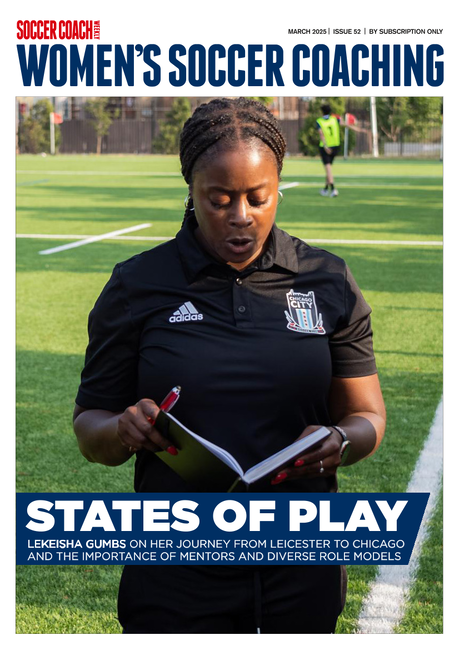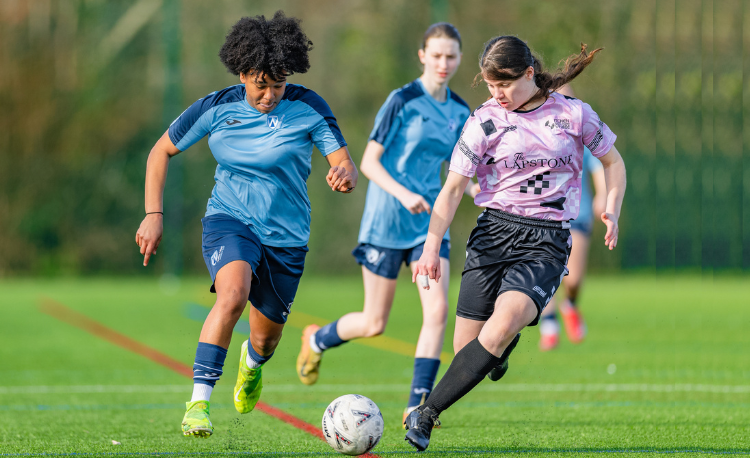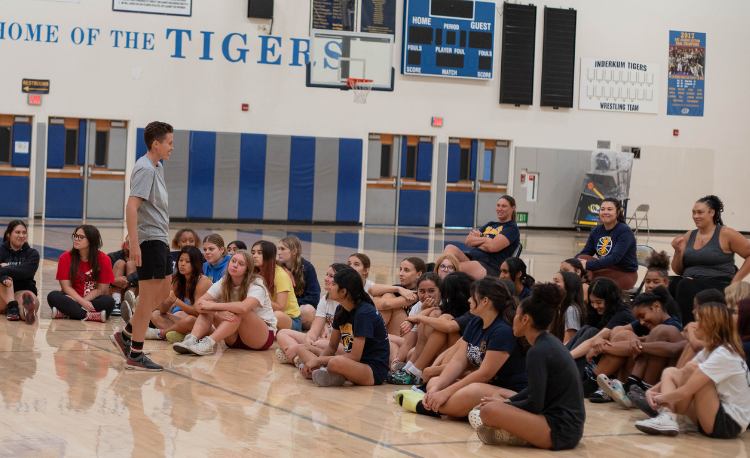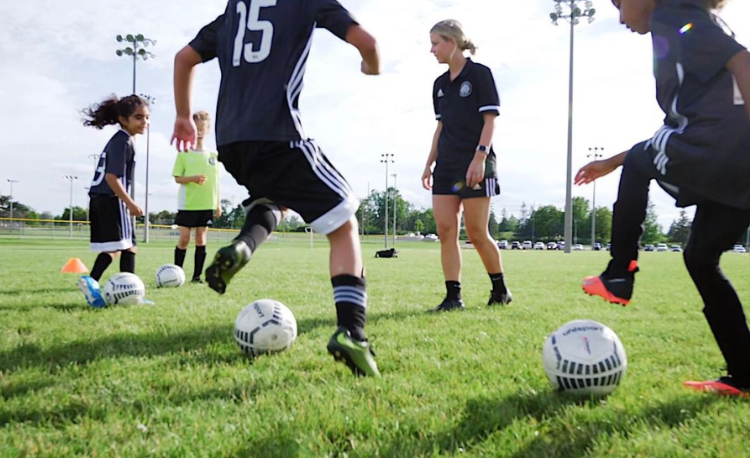You are viewing
1 of your 3 free articles
Using the E.N.G.A.G.E.D method to keep your players' attention
Not every player can be the focus of your session - sometimes they must act as support for your objectives. Gemma Dunn explains how to keep their attention using the E.N.G.A.G.E.D. method
As a coach, you are not just trying to improve individual players - often, you work with units on game-realistic scenarios.
But, if you want to drill your defence in the art of 1v1s, or make your strikers better at converting from crosses, you will need some of your team to act as the opposition, or as supplementary players.
How do you hold the attention of those who are not the main focus of your session? Gemma Dunn recommends the easy to remember E.N.G.A.G.E.D. method...
E - Enthusiasm
Express the importance of their jobs and provide praise when they do it well.
If you are not enthusiastic and engaged with their role in the session, you can’t expect them to be. Provide the energy for your players to bounce off.
N - Nurturing
These sessions can allow the opportunity to nurture the skills your players already possess.
If you want to promote the confidence and ability of your wingers to take players on in a 1v1 situation, and your full-backs are excelling in these situations, then it becomes a great challenge for your wingers and can allow your full-backs to refine their skills and focus on their technical ability in more detail.
This can also provide an opportunity for players to coach themselves. The full-back should have a good understanding on what is difficult to defend against 1v1 and can encourage the winger to attack in those ways, thus improving the full-back’s defensive skills without focusing on them.
G - Guidance
The most important players in a session can be those you aren’t focusing on, as they need to ensure they are executing their roles effectively to achieve your outcome.
Spend the first moments of the practice providing these players with the attention and detail required. During the session, leave the whole group interventions for the players you are focusing on and perform individual fly-bys for those supporting your outcomes.
A - Accountability
Sessions where you are only focusing on specific players or outcomes provide the perfect opportunity for the others to hold themselves, and each other, accountable.
You don’t want to be stopping the session every time they make a slight mistake, if the players you are focusing on are doing what you have asked.
Therefore, these sessions can be great for players to emerge as leaders and be critical of their own performance.
This will usually separate the good players from the great, based on their performance mindset.
G - Game-related
Your session should still fit your style of play - if you want your back four to improve their confidence and decision-making when playing out from the back, you will want your attackers to press how you would in a high press or mid-block.
If they perform the press well, they should be difficult to play through and it will encourage the back four to be creative. This can then link nicely to a session of working with the attacking players to identify the trigger that starts the press.
Having multiple sessions around the same concepts, just switching who you focus on, can allow for more fluid and creative practices.
E - Enjoyable
This should be a given, right? It’s the love of the game that keeps players coming back, so we need to promote enjoyment.
Allow a couple of minutes between drills for them to have a chat or some fun with a rondo, I can almost guarantee it will improve their focus in the drills.
D - Directed
Players need a target to work towards. Imagine you are working on creativity in the final third with your attacking players, and you have your back five set up in a low block. If they win possession, can they have a passing gate to play the ball through to mimic a game? Can they get double points for pushing up the pitch quickly to play the opposition offside and improve your attackers’ transition?
Try to refrain from having the defenders clear the ball off the pitch once they gain possession, as you are training them to do the same in a match and concede throw-ins.
Related Files
Newsletter Sign Up
Newsletter Sign Up
Discover the simple way to become a more effective, more successful soccer coach
In a recent survey 89% of subscribers said Women's Soccer Coaching makes them more confident, 91% said Women's Soccer Coaching makes them a more effective coach and 93% said Women's Soccer Coaching makes them more inspired.
*includes 3 coaching manuals
Get Inspired
All the latest techniques and approaches
Women's Soccer Coaching offers proven and easy to use soccer drills, coaching sessions, practice plans, small-sided games, warm-ups, training tips and advice.
We've been at the cutting edge of soccer coaching since we launched Soccer Coach Weekly in 2007, creating resources for the grassroots youth coach, following best practice from around the world and insights from the professional game.







